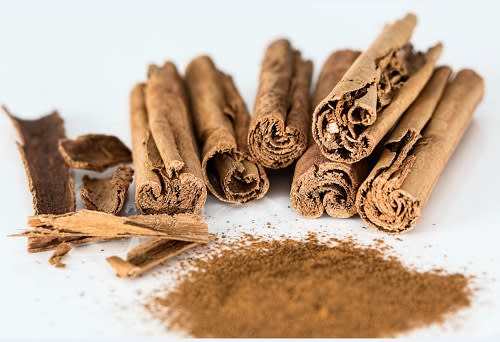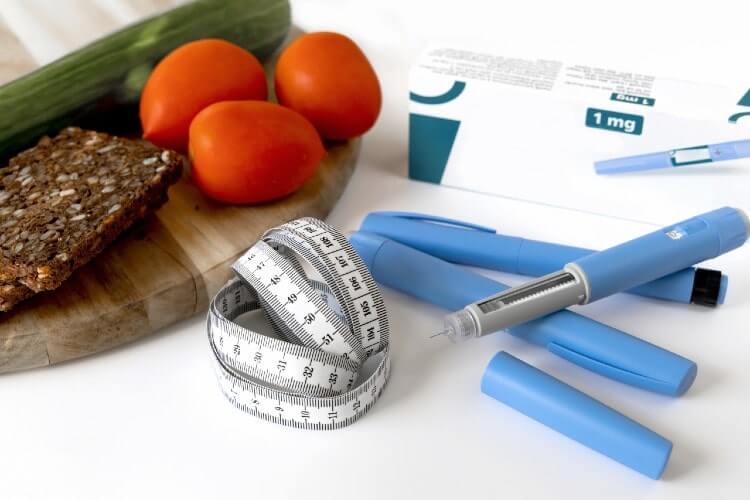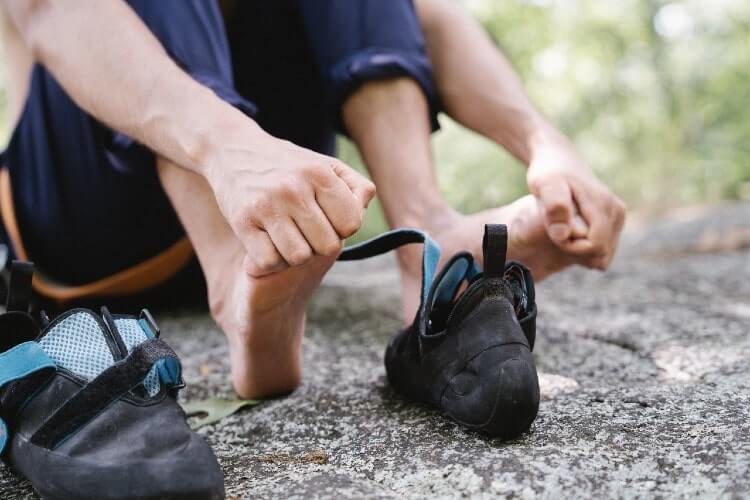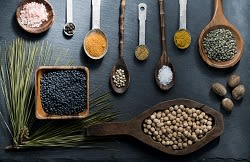By Dr. Danielle E. Greenman, Integrative Medicine
Type 2 diabetes (also called diabetes mellitus) results from the perfect storm of not enough movement, too much of the wrong foods, emotional stress, lack of sleep, toxins, and genetics. More often than not, patients with type 2 diabetes look towards natural medicine in addition to their conventional medicine for help in treating their disease. Natural medicines and using food as medicine is a wonderful way to complement your diabetes treatment. However, if added without the correct knowledge or guidance, mixing herbs, supplements and medicines can lead to a drop in blood sugar called hypoglycemia.
While I do not recommend starting any new treatments without consulting your health care provider, below find a list of my top natural remedies for type 2 diabetes.
1. Apple Cider Vinegar
The primary compound in ACV is acetic acid and is believed to be responsible for many of its health benefits. There are many evidence-based approaches to using ACV. Taking 2 tablespoons before bedtime can reduce your morning fasting sugar levels. Even better, 1-2 tablespoons of ACV taken with meals can decrease the glycemic load of a carbohydrate rich meal. I generally tell patients to either consume ACV alone, prior to a meal or mix it into salad dressings or teas.
2. Fiber and Barley
Eating fiber decreases blood sugar and insulin concentrations. The recommended amount of fiber is around 30 grams per day. Most Americans get around 6-8 grams, which is not nearly enough. While you can take fiber supplements like Metamucil (psylium husk), the best way to reach your goal is to eat your veggies! Barley is a high-fiber, high-protein grain which has lots of data to support its role in helping improve blood sugar, insulin, cholesterol and general inflammation. Barley does not requiring soaking and usually can cook in less than 15 minutes on the stove top with just some water and salt.
3. Chromium
Mainly found in brewer’s yeast, deficiency in chromium impairs the metabolism of glucose. Evidence supports chromium for lower blood sugar and A1c levels. Be careful if you have kidney disease with this supplement.
4. Zinc
Those with diabetes are commonly found to be zinc deficient. Studies have shown zinc supplementation can reduce blood sugar and A1C, have an antioxidant effect, lower blood sugar and even help treat some of the complications related to diabetes. Large doses of zinc can inhibit the absorption of other minerals like copper, so be sure to ask for guidance of the appropriate dosing.
5. Aloe Vera
The sap of aloe vera is known for its laxative effect. Therefore, make sure to get the juice of the gel! There is increasing evidence for use of the gel, which is the mucilaginous material inside the leaves. Be sure that any product you buy is free of aloin or anthraquinones to avoid finding yourself in the bathroom!
6. Berberine
This is one of my all-time favorite botanicals found in plants such as goldenseal, barberry, Oregon grape root and Coptis. Current evidence supports its use for decreasing blood sugar and hba1c. Be aware that this herb can interfere with metabolism of traditional pharmaceuticals and should never be taken while pregnant.
7. Cinnamon
A medically beneficial indulgence to help lower your blood sugar and cholesterol levels.
8. Fenugreek
A seed commonly used as a food spice has been used abroad for centuries for its medical benefits to lower cholesterol and hba1c. If your urine smells like maple syrup, not to worry, this is a known side effect and is harmless.
9. Gymnema
Used for centuries in India, evidence is catching up to its medical use showing benefits for glucose metabolism, insulin levels and as an adjunct to improve the results of traditional pharmaceuticals. Be aware, because this botanical works synergistically with your meds, you must monitor your blood sugar closely to avoid having hypoglycemia.
10. Nopal
Ever see nopales at your favorite Mexican restaurant? Now you can order them and, rest assured, you’re choosing a food that help lower your blood sugar. Nopales are the pads of the prickly pear cactus and when cooked right are delicious! I personally like eating them with eggs or as a salad.
Learn More about Integrative Medicine Services
We're here to help. If you have questions or need assistance, call 203.276.4777.
While I do not recommend starting any new treatments without consulting your health care provider, below find a list of my top natural remedies for type 2 diabetes.
1. Apple Cider Vinegar
The primary compound in ACV is acetic acid and is believed to be responsible for many of its health benefits. There are many evidence-based approaches to using ACV. Taking 2 tablespoons before bedtime can reduce your morning fasting sugar levels. Even better, 1-2 tablespoons of ACV taken with meals can decrease the glycemic load of a carbohydrate rich meal. I generally tell patients to either consume ACV alone, prior to a meal or mix it into salad dressings or teas.
2. Fiber and Barley
Eating fiber decreases blood sugar and insulin concentrations. The recommended amount of fiber is around 30 grams per day. Most Americans get around 6-8 grams, which is not nearly enough. While you can take fiber supplements like Metamucil (psylium husk), the best way to reach your goal is to eat your veggies! Barley is a high-fiber, high-protein grain which has lots of data to support its role in helping improve blood sugar, insulin, cholesterol and general inflammation. Barley does not requiring soaking and usually can cook in less than 15 minutes on the stove top with just some water and salt.
3. Chromium
Mainly found in brewer’s yeast, deficiency in chromium impairs the metabolism of glucose. Evidence supports chromium for lower blood sugar and A1c levels. Be careful if you have kidney disease with this supplement.
4. Zinc
Those with diabetes are commonly found to be zinc deficient. Studies have shown zinc supplementation can reduce blood sugar and A1C, have an antioxidant effect, lower blood sugar and even help treat some of the complications related to diabetes. Large doses of zinc can inhibit the absorption of other minerals like copper, so be sure to ask for guidance of the appropriate dosing.
5. Aloe Vera
The sap of aloe vera is known for its laxative effect. Therefore, make sure to get the juice of the gel! There is increasing evidence for use of the gel, which is the mucilaginous material inside the leaves. Be sure that any product you buy is free of aloin or anthraquinones to avoid finding yourself in the bathroom!
6. Berberine
This is one of my all-time favorite botanicals found in plants such as goldenseal, barberry, Oregon grape root and Coptis. Current evidence supports its use for decreasing blood sugar and hba1c. Be aware that this herb can interfere with metabolism of traditional pharmaceuticals and should never be taken while pregnant.
7. Cinnamon
A medically beneficial indulgence to help lower your blood sugar and cholesterol levels.
8. Fenugreek
A seed commonly used as a food spice has been used abroad for centuries for its medical benefits to lower cholesterol and hba1c. If your urine smells like maple syrup, not to worry, this is a known side effect and is harmless.
9. Gymnema
Used for centuries in India, evidence is catching up to its medical use showing benefits for glucose metabolism, insulin levels and as an adjunct to improve the results of traditional pharmaceuticals. Be aware, because this botanical works synergistically with your meds, you must monitor your blood sugar closely to avoid having hypoglycemia.
10. Nopal
Ever see nopales at your favorite Mexican restaurant? Now you can order them and, rest assured, you’re choosing a food that help lower your blood sugar. Nopales are the pads of the prickly pear cactus and when cooked right are delicious! I personally like eating them with eggs or as a salad.
Please remember: this list of herbs is not medical advice and should not be taken unless advised by a healthcare provider.
Featured Expert/ Author















